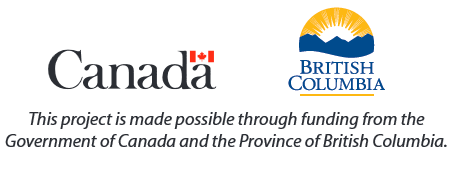Working in Canada Seminar
The Working in Canada Seminar is an online, self-paced course designed to address key skills, competencies and customs commonly expected within the Canadian engineering workplace environment. The seminar provides useful and practical information for all who intend to practice professional engineering in Canada.
Development of the Working in Canada Seminar was funded in part by the BC Ministry of Jobs, Economic Development and Competitiveness and the Government of Canada.
Unit 1: The Regulation and Practice of Engineering in Canada
This unit explores the engineering regulatory framework in Canada, the expectations of a professional engineer, and the Code of Ethics. Engineering is not a self-regulated profession in many parts of the world; therefore, internationally trained engineers need to have a thorough understanding of the legislation that governs engineering in Canada, the role of the regulatory bodies, and the primary responsibilities of professional engineers. After completing the unit, participants will be able to work in accordance with legislation and the key principles of professionalism.
Unit 2: Codes, Standards, and Regulations
This unit explores the regulatory requirement for professional engineers to design engineering solutions according to the codes, standards, and regulations of Canada and its provinces and territories. The materials are designed to raise significant awareness of the purpose and variety of codes, standards and regulations. After completing the unit, participants will know how to search for codes, standards, and regulations in the Canadian workplace, and have a strong understanding of the expectations for complying with them.
Unit 3: Culture and Communication
This unit explores the role of culture and communication in the engineering environment in Canada. As with many other professions, the engineering workforce in Canada is both culturally and linguistically diverse. As such, people need to understand the cultural norms of the Canadian engineering environment. They also need to know how to interpret and respond to the behaviors and communication styles of people from cultural origins outside of Canada. At the end of the unit, participants will be more aware of how to adapt their behaviors and communication as necessary in a multicultural Canadian engineering context.
Unit 4: Collaboration and Peer Review
This unit explores collaboration and peer review as they refer to working in teams and having work reviewed by others to ensure the engineer is not an isolated practitioner. Engineering in Canada often requires working with engineers from different disciplines, working in teams, and participating in peer review. At the end of the unit, participants will be able to work more collaboratively and participate more openly and respectfully in peer review and in a team environment.

